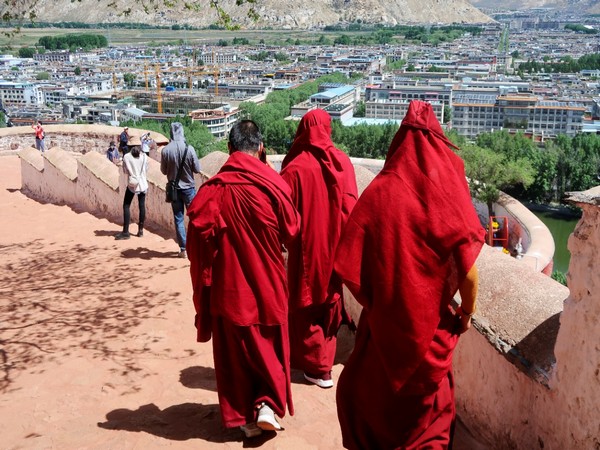In the 38th session of the National People’s Congress (NCP) Chinese government put a draft law on the ecological conversation of Tibet for consideration. Although, in reality, the law has been made to relocate Tibetan nomads from their lands, all the while accusing them of degradation and deforestation, when in reality they have been the managers and keepers of these lands for ages, according to a report by Tibet Rights Collective (TRC) a Delhi-based advocacy and policy research institute.
In the name of restoring the landscape of Tibet and for grassland preservation, China has been forcibly resettling nomads. In 2017 a policy was announced under which vast areas of Tibet were turned into National Parks. Although for this more than 1000 Tibetan were displaced from their lands in north Tibet in 2018 which China named “high-altitude ecological migration”.
The draft law according to Tibetologist Gabriel Laffite seeks to displace more Tibetan nomads from their landscapes but does not stop mining. “In the name of ecological restoration, Tibetans are further demobilized, made to stay put in new border villages, under surveillance”.
Ironically the Chinese legislation mentions that it is important to relocate Tibetan pastoralists from pastures because they are responsible for the degradation and desertification of the Tibetan landscape. Although this overlooks the role that they play in maintaining and protecting Tibet’s ecosystem.
According to Laffite the draft law passed by China “is a fantasy of perfect management, perfect risk control, perfect imposition of human will, a nationalization and Sinicization of Tibetan landscapes by a nation-state empowered by legislation to remove the Tibetan pastoralists and thus restore nature, under the vigilant gaze of the party-state”.
The TRC report further says that there were no productive consultations with key stakeholders while drafting this law.
This is not the first time that the Chinese Communist Party (CCP) is greenwashing its crimes in Tibet. China since 2006 has imposed relocation plans for the nomadic population of Tibet as the Chinses authorities have viewed them as backward, ignorant, and irrational and have been overgrazing the lands causing damage to Tibet, according to the TRC report.
The TRC report further says that this relocation and change in the Tibet plateau must be considered with caution as Tibet is a land that plays a central role in the climate change scenario today. It is the home of many rivers that feed the Asiatic continent and has been named the third pole of the world for its ecological significance. That is why recent floods draughts and other calamities cannot be ignored.
All the uncontrolled construction of dual-use infrastructure, hydro dams, and over-tourism have disturbed the fragile ecosystem accelerating the impacts of global warming in Tibet, the TRC report points out.

